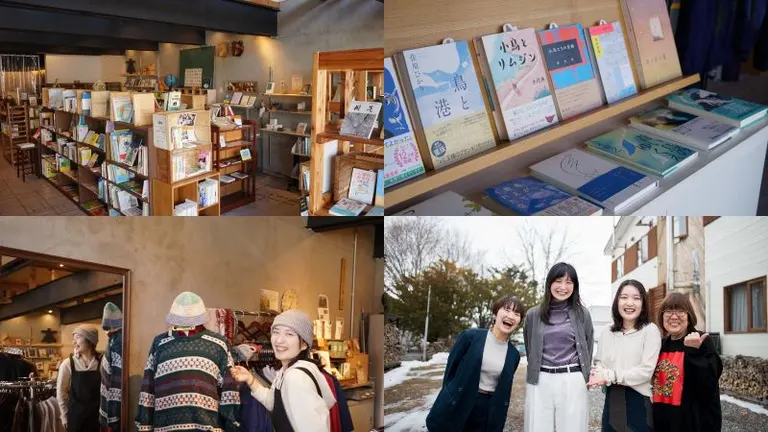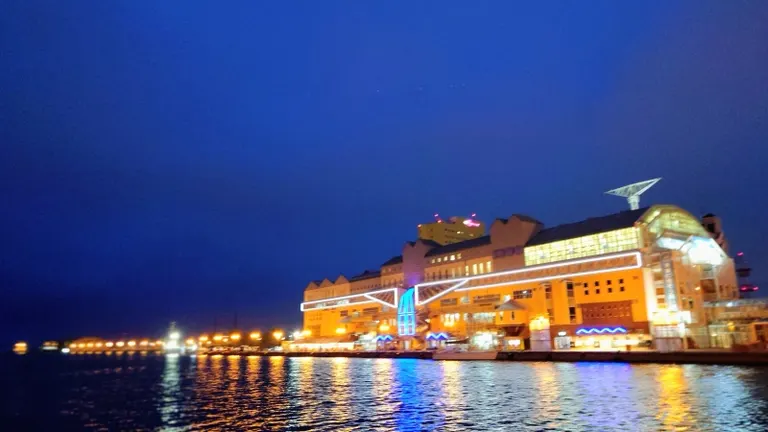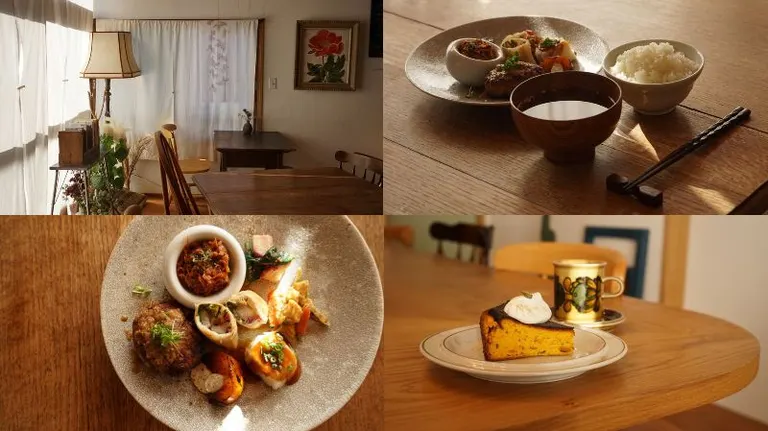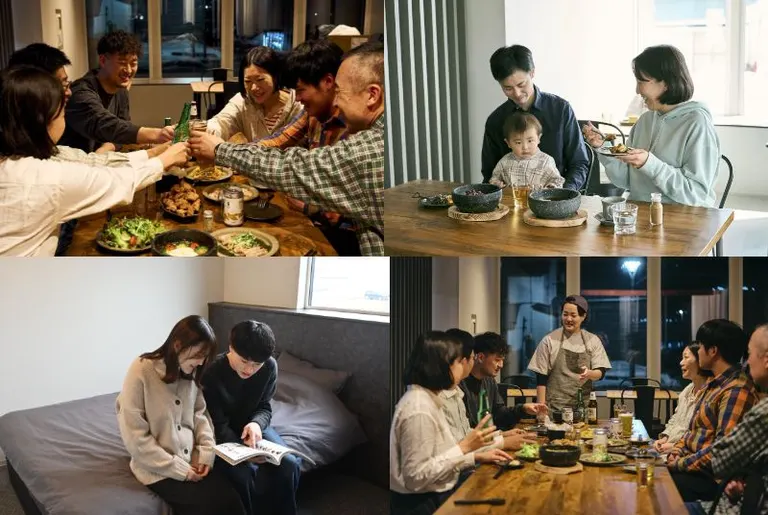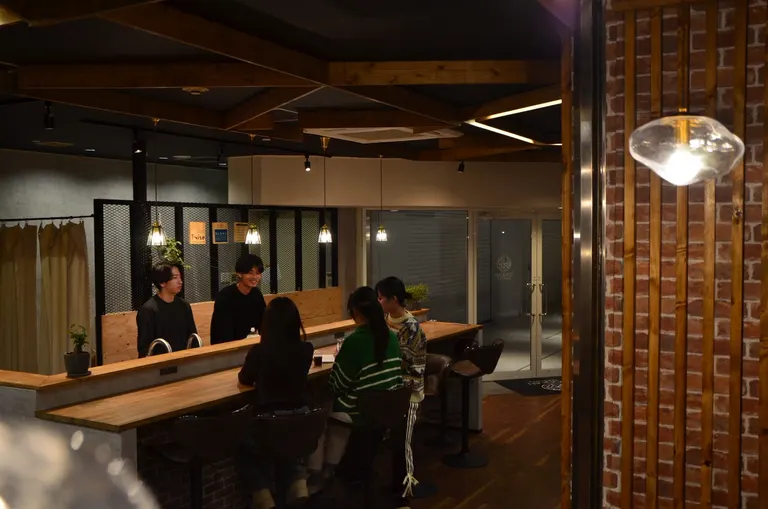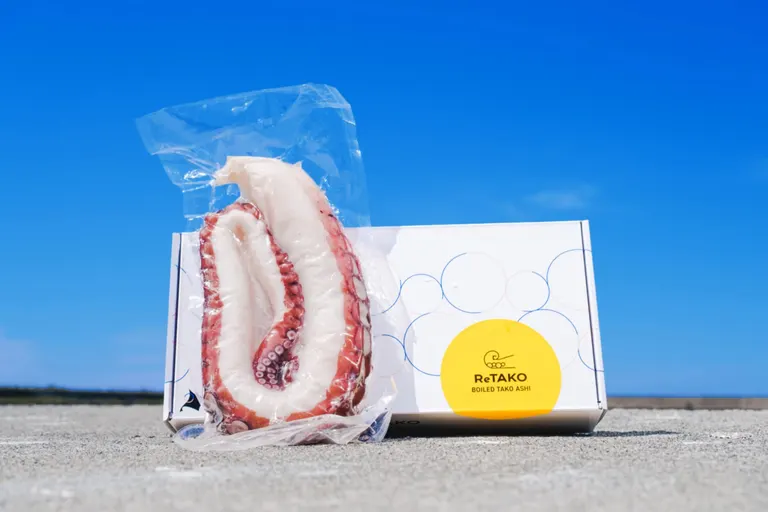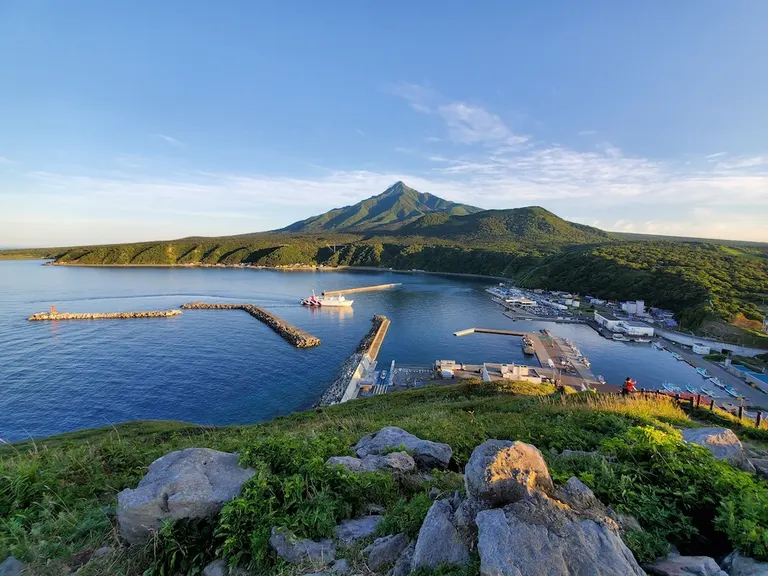
ARTICLES
After Wandering Across Japan, She Found Her Home. A Travel-Loving Community Cooperator Shares the Charms of Rishiri Island
Now, as a relocation coordinator, she shares the island's charms and devises plans to help prospective residents imagine what life on the island is really like. We spoke with Ms. Umemura about the attractions she has rediscovered since moving here and what she hopes to achieve in the future.
Contents
- Captivated by Travel and the New Worlds It Reveals.
- Becoming a Relocation Coordinator, Putting Her Migrant Perspective to Use.
- The Comfort of Living as Your True Self, in Harmony with Nature.
- A Desire to Create the Things She Wishes the Island Had.
- The Joy of Identifying and Solving the Island's Challenges.
Captivated by Travel and the New Worlds It Reveals.
Born and raised in Toyama Prefecture, Ms. Umemura's hobby is traveling. After entering university in Kyoto, she spent her time traveling both in Japan and abroad whenever she could secure the time.
"I took on many challenges during my student years, like traveling to Thailand by myself and spending two weeks in Italy for my graduation trip. The best part of traveling is seeing new things, talking to people you've never met before, and discovering a world you never knew existed."
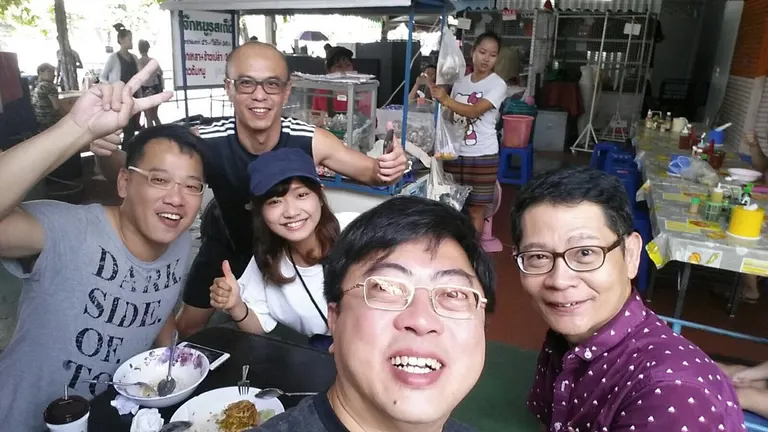
In Thailand, with some people from Singapore she befriended over breakfast. They are still connected on Facebook.
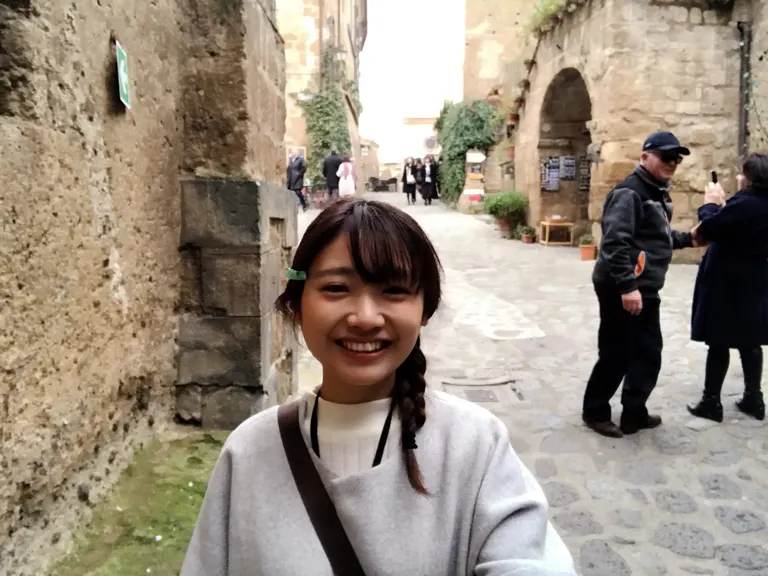
A solo trip to Italy. In a town called Orvieto, beautiful for its medieval streetscape.
After graduation, her love for travel led her to a job at a travel agency, but her work was so demanding that she couldn't find time for her actual hobby of traveling, so she quit after six months. After that, she continued a lifestyle that combined her hobby and her livelihood, moving around the country working part-time at various resorts.
"Karuizawa, Yufuin, Kumejima, Aizuwakamatsu, Hachijojima, Marugame, Niseko... In these tourist spots, I mainly worked jobs involving interaction with tourists, such as at hotels, restaurants, and theme parks."
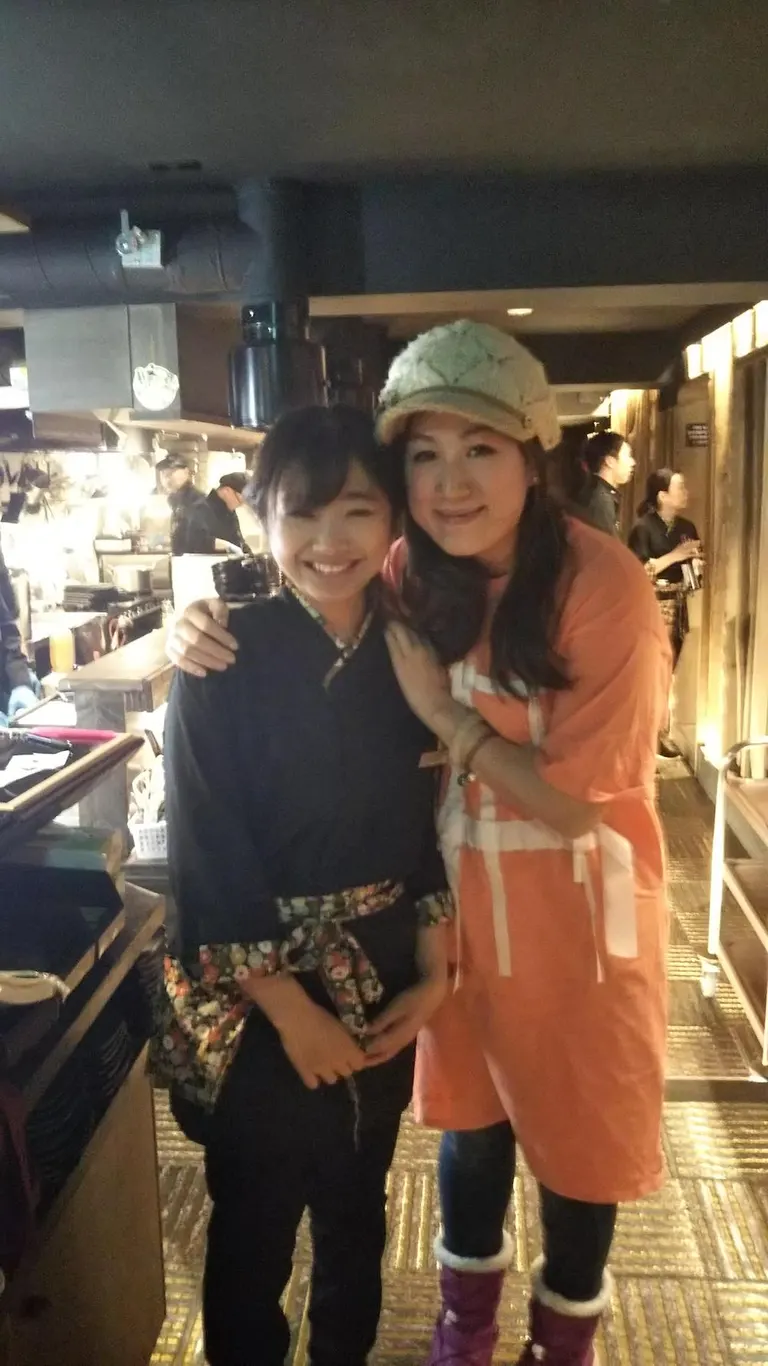
In Niseko, she worked at a yakiniku restaurant. A photo taken with a customer.
Among all those places, Rishiri Island was different. Her part-time job shucking sea urchins gave her the rare experience of "working with local people."
After the season ended, she left Rishiri Island and started another part-time job in a different town. However, the COVID-19 pandemic made it difficult to travel, so she returned to her hometown in Toyama. When she began to think about settling down somewhere, she naturally found herself thinking, "I want to go back to Rishiri Island."
"Compared to other areas, I spent more time interacting with the locals, which made it easy to imagine myself living on Rishiri Island. I became friends with my colleagues and the fishermen, who would take me out for meals or invite me to go offshore fishing. I learned to fillet the fish they gave me and make local dishes. It was a big factor that I could really picture myself living that way."
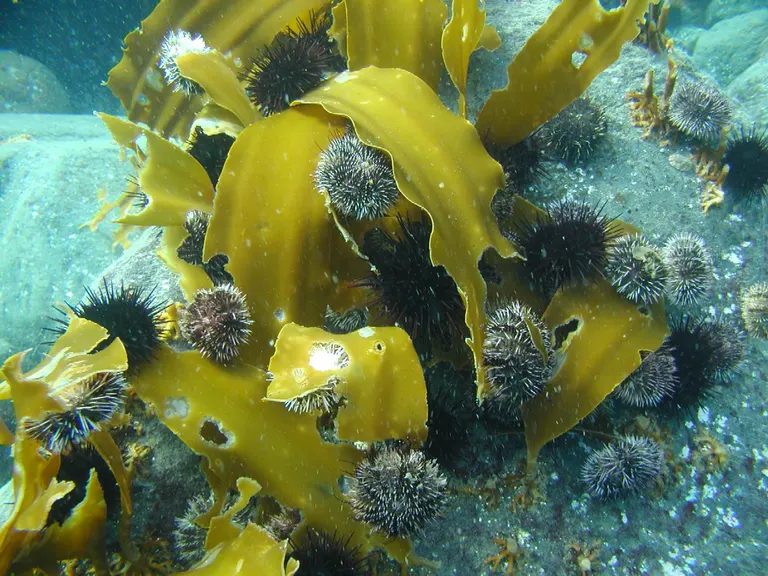
The sea urchins on Rishiri Island, raised on delicious Rishiri kombu kelp, are bound to be exquisite.
She returned to Rishiri Island in the summer of 2020 for the sea urchin shucking job and officially moved there in the fall. She took on a position with the Community-Engaging Cooperation Corps, which offered stable, year-round employment and a chance to get to know the region on a deeper level.
Becoming a Relocation Coordinator, Putting Her Migrant Perspective to Use.
"Currently, as a relocation coordinator, I plan and manage the relocation portal site 'Rishirifuji Gurashi.' My main duties are responding to inquiries about jobs and housing, and coordinating workations and trial移住 experiences."
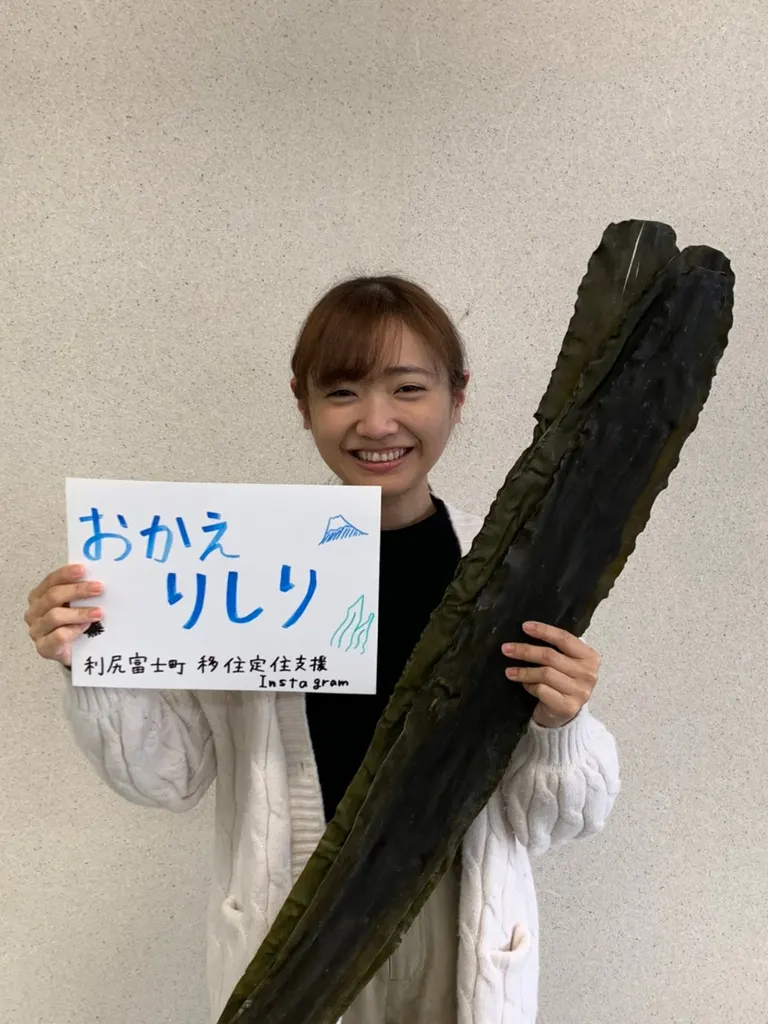
She leverages her own experience as a migrant in her work, having prospective residents try sea urchin shucking and giving them a realistic picture of Rishiri Island as a place to live, not just a tourist destination. She has also created an original hands-on activity: making kamaboko fish cakes from Atka mackerel, a dish Ms. Umemura herself first tasted after coming to the island.
"It's surprisingly hard to find places to buy fish on the island. Islanders often receive fish from others, and most of it is shipped off the island. So, I came up with an activity where I source Atka mackerel from fishermen, start by filleting it, and then make the kamaboko with the participants. I thought it would be interesting for people to have the experience of making a delicious local food with their own hands."
The Atka mackerel kamaboko is a local dish made by frying a seasoned paste of minced fish mixed with carrots and onions. Since it's best eaten fresh and is difficult to buy as a souvenir, the cooking experience has been very well-received.
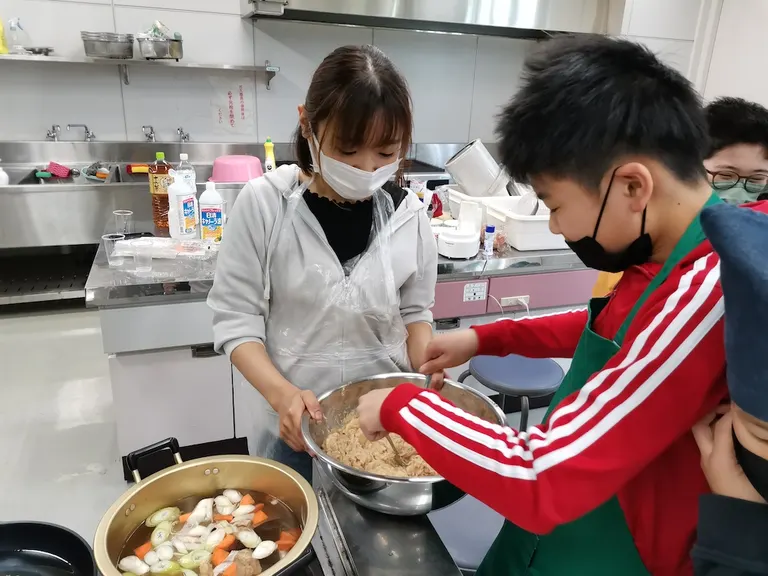
The Comfort of Living as Your True Self, in Harmony with Nature.
It's been nearly two years since she moved. What are the charms of Rishiri Island that Ms. Umemura has come to appreciate anew?
"Of course, the stress-free life, like not having to ride packed trains, is comfortable. But what I really realized after living here is that humans can't fight nature. On the island, if strong winds cause boats and planes to be canceled, you have no choice but to change your plans, and sometimes your work for the day is gone. On snowy mornings, you have the job of shoveling snow before you can even start your regular work. These experiences make you realize that we are just being allowed to live in nature."
When she lived in the city, she often reflected on her day thinking, "I wanted to do this and that, but I couldn't get it all done." But on the island, she finds herself being more forgiving. "This is fine," or "It can't be helped if I couldn't do it today." While feeling the harshness of nature, she also experiences the slow, gentle flow of time in island life. She says she feels more at ease, increasingly feeling that it's okay to live at this unhurried pace.
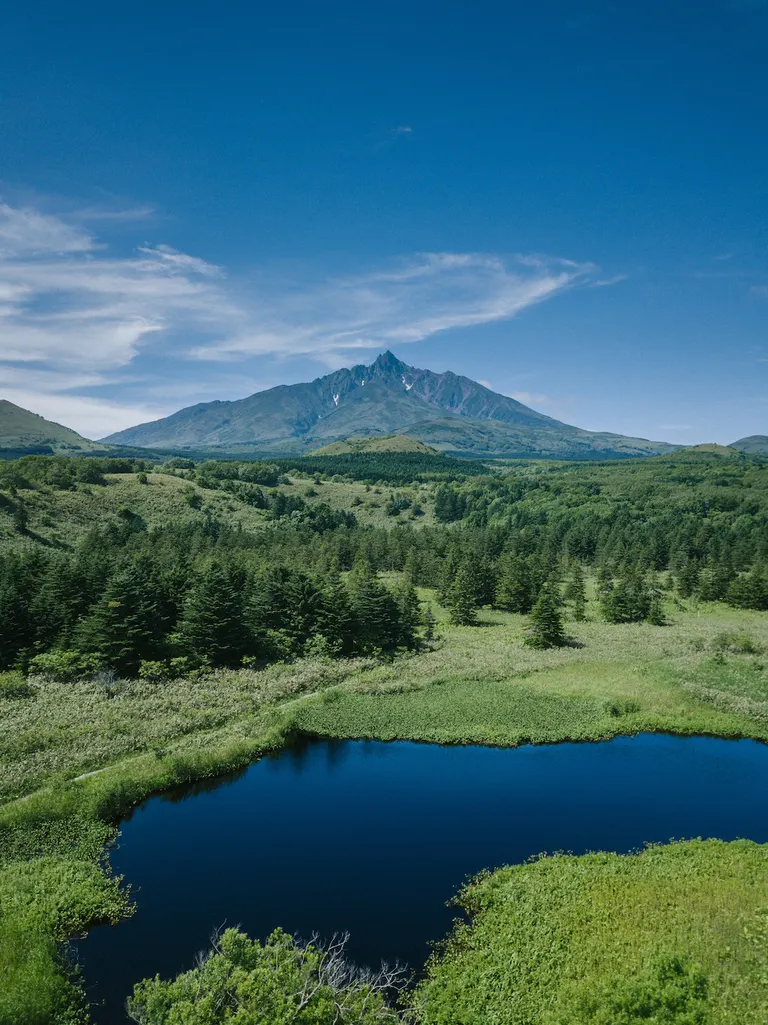
And, of course, the rich natural environment is a huge attraction.
"Everyone who lives here cares about Mount Rishiri, the island's symbol. On days when you can see it clearly, the topic of 'The mountain looks so beautiful today' always comes up. It's surprisingly rare to see the entire mountain—sometimes just the peak is covered in clouds, or on cloudy days, you can't see it at all. That's why even people who have lived here for decades will say, 'The mountain is beautiful today.' I think it's a sign of how much the mountain is loved."
A Desire to Create the Things She Wishes the Island Had.
While based at the town hall, Ms. Umemura also enjoys island life by working multiple part-time jobs. Interacting with islanders in various settings has shown her new sides of the island.
"I work part-time at a bar at night, and it's a very meaningful time. Regulars get to know me, and I hear information about the town I didn't know. It's also a valuable place for me to let many people know about what I want to do in the future."
She has a little over a year left in her term with the Cooperation Corps. After she finishes, she plans to continue working in the field of relocation and settlement support.
"In addition, I want to create tours that go beyond tourism and show a deeper side of the island. For example, islanders sometimes invite me to go fishing, but there's no fishing gear rental shop in town. From my perspective, I want to bring to life the things I think would be fun to have here."
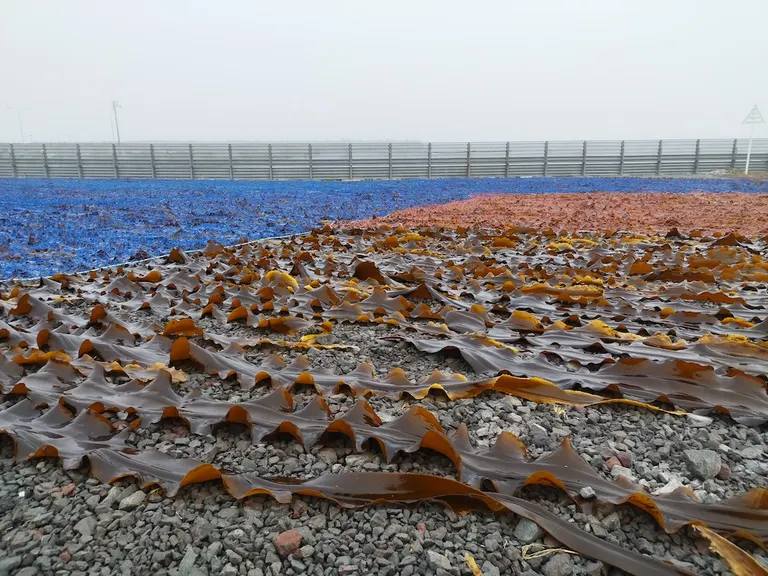
Rishiri kombu kelp, just as famous as the sea urchins.
She also wants to create hands-on learning programs for children, as she often hears that there are no places on Rishiri Island for kids to play on their own.
"There are activities like fishing and mountain climbing that they can do with adults, but there's no place on Rishiri Island where children can have fun by themselves. The lack of transportation options is a major issue; even if there were a playground, an adult would have to drive them there. For example, if we could create a system where children participate in a hands-on program while their parents are on a workation during summer break, it would make long-term stays easier. I want to create plans that welcome children from visiting families and give them unique island experiences through activities like SUP and camping."
The Joy of Identifying and Solving the Island's Challenges.
After people interested in Rishiri Island talk with Ms. Umemura or participate in one of her experiences, they always say, "It was fascinating to see things you can't see with just tourism and to hear stories I wouldn't have known otherwise." She also hears more and more people say things like, "Rishiri Island is a wonderful place," and "I'd love to live here." "When I feel happy hearing those words, I think maybe I'm finally becoming a part of the island myself," Ms. Umemura says with a smile.
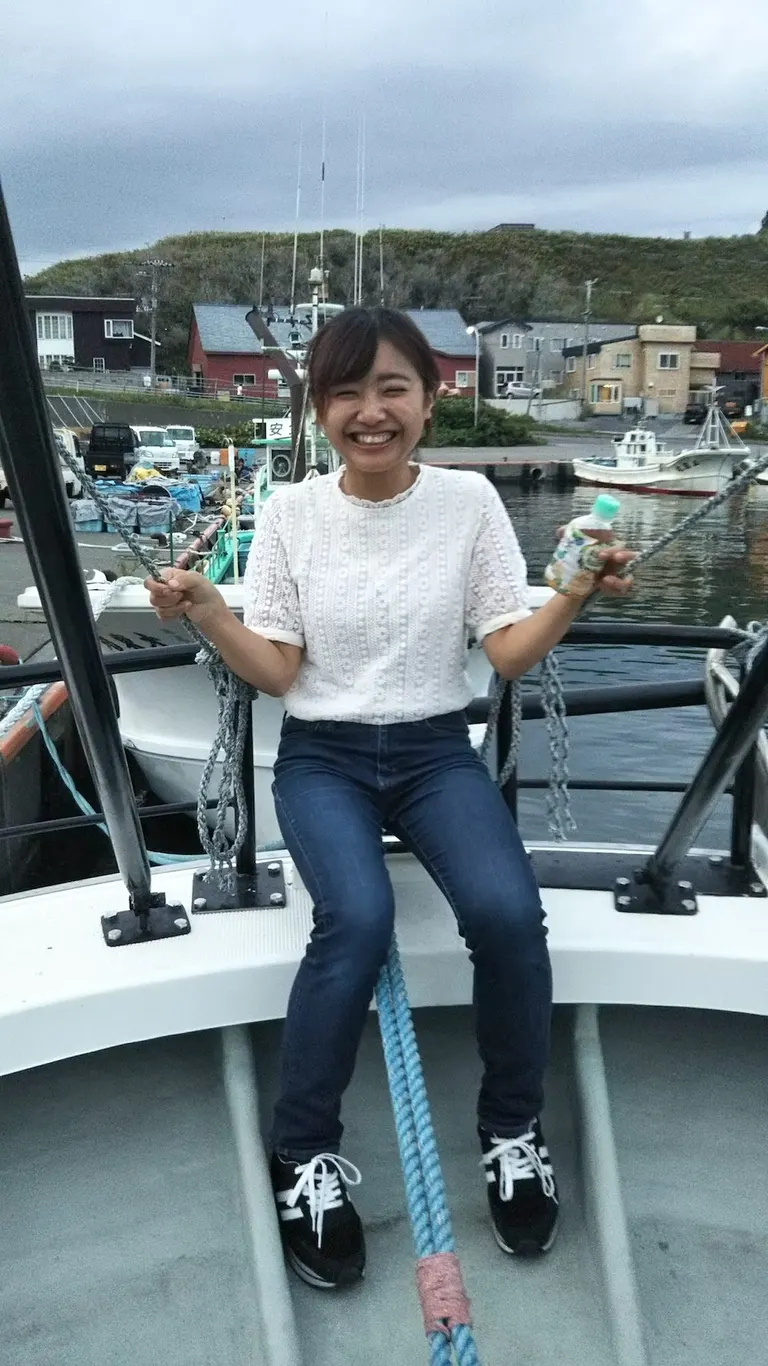
A commemorative photo taken aboard a fisherman's new boat during a celebration, back when she was working a resort part-time job shucking sea urchins.
Because there are many things the island lacks, it's easier to find what "would be nice to have here." Because the challenges are visible, ideas for solving them emerge. That, Ms. Umemura says, is another interesting part of the island. Although there are various obstacles to making her ideas a reality, she has been expanding her network through her work with the Cooperation Corps and her part-time jobs, and with the help of those around her, she has finally built a foundation to take on these challenges.
"The island has been so good to me, I want to give back," says Ms. Umemura. The day is surely near when Rishiri Island, an object of admiration not only for people from Japan's main islands but also for fellow Hokkaido residents, will become even more charming thanks to this young migrant.
To learn more about Miyuki Umemura and Rishirifuji Town, check these out!
▼Rishirifuji Town Relocation Portal Site
Rishirifuji Gurashi
▼Instagram
"Okaerishiri" Hokkaido Rishirifuji Town Relocation & Multi-location Island Life
▼YouTube
Okaerishiri Channel
Writer Profile
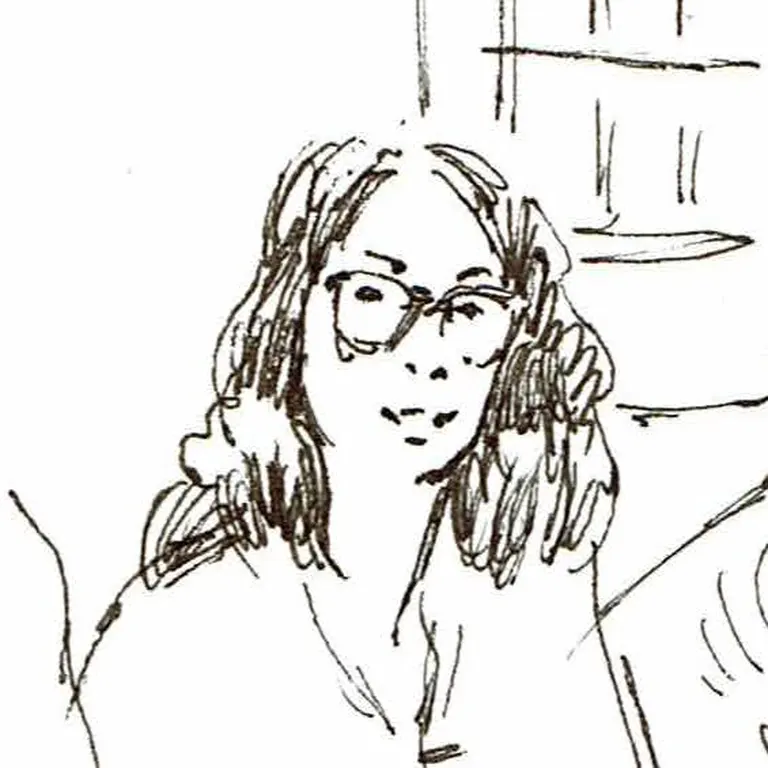 Satoko Nakano
Satoko Nakano
Born and raised in Tottori Prefecture, the least populated prefecture in Japan. After graduating from high school, I moved to Tokyo and lived there for about 20 years before moving to Kimobetsu Town with my family in August 2017. I enjoy the clear air and heavy snow at the foot of Mount Yotei and am touched by the warmth of the people every day.






